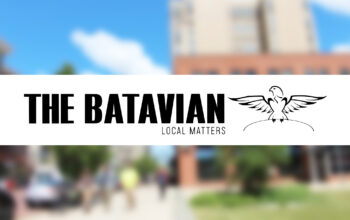Introduction
Negin Behazin vs. Dignity Health is a significant and multifaceted legal battle within the healthcare sector. This case, extending over several years, encapsulates critical issues ranging from allegations of medical malpractice to the controversial denial of gender-affirming surgery, ultimately pivoting toward the profound themes of workplace discrimination and unlawful termination. This article aims to dissect the complexities of this case, shedding light on its implications for healthcare, legal ethics, and employee rights.
The Genesis of the Case: Medical Malpractice and Patient Rights
The journey of Negin Behazin’s legal struggle against Dignity Health began with allegations rooted in medical malpractice and violations of patient rights. Behazin, a transgender woman, was an employee and a patient within the Dignity Health system. Her initial complaints were centered around the perceived negligence and substandard care she received, which she claimed directly resulted in personal harm. This part of the lawsuit brought to the forefront issues surrounding the quality of healthcare, patient safety, and the responsibilities of healthcare providers toward ensuring optimal patient outcomes.
The Denial of Gender-affirming Surgery

As the case unfolded, it brought to light a contentious issue that sparked widespread debate: the denial of gender-affirming surgery. Behazin argued that Dignity Health’s refusal to provide this essential healthcare service was discriminatory and a blatant violation of her rights under various anti-discrimination laws. This aspect of the case was particularly groundbreaking as it highlighted the struggles of the transgender community in accessing healthcare services that are often deemed non-essential by healthcare providers despite their critical importance for the mental and physical well-being of transgender individuals.
Also Read: Divino Plastic Surgery Lawsuit
Allegations Under the Americans with Disabilities Act (ADA)
The complexities of the case further intensified when Behazin, leveraging her status as a former employee of Dignity Health, filed a lawsuit under the Americans with Disabilities Act (ADA). This move brought the case under the umbrella of employment law, opening up discussions about the rights of employees, especially those belonging to marginalized communities, within the workplace. The ADA allegations were pivotal in drawing attention to how large institutions accommodate (or fail to accommodate) employees with unique needs or circumstances.
The Fight Against Discrimination and Retaliation

In 2017, Behazin’s legal battle entered a new phase when she accused Dignity Health of discrimination, retaliation, and failure to prevent discrimination. This lawsuit stage was critical as it underscored employees’ challenges in standing up against large, powerful institutions. The initial dismissal of the case by a federal judge, followed by its reinstatement by the Ninth Circuit Court of Appeals in 2019, highlighted not only the hurdles in seeking justice but also the resilience and perseverance required to navigate the complex U.S. legal system.
Also Read: Trulife Distribution Lawsuit
Behazin’s Role and Challenges at Dignity Health
Negin Behazin’s role as a nurse at Dignity Health’s Northridge Hospital Medical Center in Los Angeles became a focal point in the case. Her allegations of wrongful termination intertwined with her claims of discrimination, painting a picture of a hostile work environment that was intolerant of diversity and unresponsive to the needs of its employees. This aspect of the case is particularly enlightening as it offers a glimpse into the internal dynamics of healthcare institutions and the balance they must maintain between employee rights, patient care, and institutional policies.
Legal and Ethical Implications

The Negin Behazin vs Dignity Health case transcends the personal struggle of one individual; it brings to light broader legal and ethical implications for healthcare providers, legal practitioners, and policymakers. The case tests the boundaries of existing laws and healthcare policies, challenging them to be more inclusive and accommodating of diverse populations. It also underscores the importance of ethical decision-making in healthcare, where the rights and needs of patients and employees alike must be weighed against institutional policies and practices.
The Broader Impact on Healthcare and Employment Law
As this case continues to evolve, its impact resonates beyond the confines of Dignity Health and Behazin’s personal experiences. It serves as a precedent for similar cases in the future, potentially influencing how healthcare institutions approach patient care, especially for marginalized groups. Moreover, the issue has implications for employment law, particularly in how employers handle discrimination, retaliation, and wrongful termination, especially within the healthcare sector.
Conclusion
The Negin Behazin vs Dignity Health case is a compelling narrative encompassing various legal, healthcare, and ethical facets. It is a testament to the ongoing struggles for equal rights, fair treatment, and justice within the workplace and the healthcare system. As this case progresses, it will continue contributing to the evolving discourse on these critical issues, potentially paving the way for more inclusive and equitable practices in healthcare and employment.




